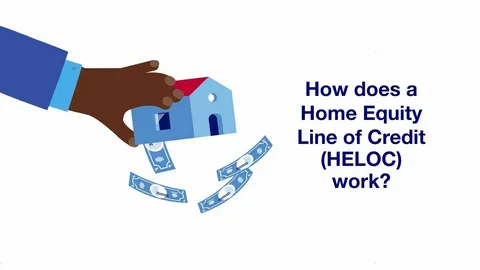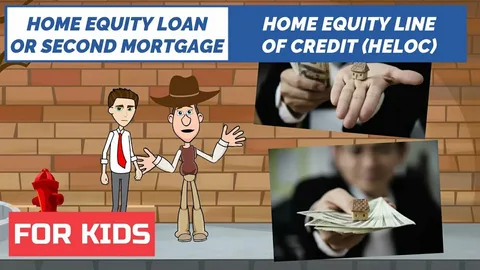When it comes to financing options, an Equity Line of Credit (HELOC) can be a valuable tool for homeowners. This article will explore what a HELOC is, how it works, the advantages and disadvantages, and everything else you need to know to make an informed decision. We promise to keep it engaging—after all, finance doesn’t have to be boring, right?

What is an Equity Line of Credit?
A Home Equity Line of Credit (HELOC) is a revolving line of credit secured by your home’s equity. It’s like having a credit card that uses your house as collateral. You can borrow up to a certain limit, repay it, and borrow again as needed.
How Does a HELOC Work?
HELOCs typically have two phases:
- Draw Period: Usually lasting 5 to 10 years, this is when you can borrow against your equity. You may only be required to pay interest during this time.
- Repayment Period: This phase can last 10 to 20 years, during which you pay back both the principal and interest.
Fun fact: Think of it as a financial yo-yo—up and down, but hopefully always coming back to a manageable level!
Why Consider a HELOC?
There are many reasons a homeowner might consider a HELOC:
Home Improvement Projects
If you’re planning to renovate your kitchen or add a deck, a HELOC can provide the funds you need. Plus, improvements can increase your home’s value!
Debt Consolidation
Using a HELOC to pay off high-interest debt can save you money in the long run. Just be cautious—using your home as collateral carries risks.
Emergency Expenses
Life is unpredictable! A HELOC can serve as a safety net for unexpected expenses like medical bills or home repairs.
Advantages of a HELOC
Flexibility in Borrowing
With a HELOC, you can borrow only what you need when you need it. This flexibility can make it easier to manage your finances.
Potential Tax Benefits
In some cases, the interest paid on a HELOC may be tax-deductible. Always consult a tax professional to ensure you understand the implications.
Lower Interest Rates
Compared to credit cards and personal loans, HELOCs often offer lower interest rates since they’re secured by your home.

Disadvantages of a HELOC
Risk of Foreclosure
Since your home is collateral, failing to repay the loan could put your home at risk.
Variable Interest Rates
Most HELOCs have variable interest rates, which means your payments could increase over time. This unpredictability can be stressful.
Fees and Closing Costs
Just like a first mortgage, a HELOC may have fees, including closing costs and annual fees. Always read the fine print!
How to Qualify for a HELOC
To qualify for a HELOC, lenders typically consider:
- Credit Score: Generally, a score above 620 is favorable.
- Home Equity: You’ll need enough equity in your home, usually at least 15-20%.
- Debt-to-Income Ratio: Lenders prefer a DTI ratio below 43%.
Pro tip: If your credit score is lower than you’d like, consider taking some time to improve it before applying. A few small changes can make a big difference!
How to Use a HELOC Wisely
Create a Budget
Before you draw from your HELOC, create a budget to ensure you know exactly how much you can afford to borrow and repay.
Avoid Unnecessary Spending
It can be tempting to use your HELOC for non-essential purchases, but be cautious. Treat it like a loan, not free money!
Have a Repayment Plan
Think ahead! Having a solid repayment plan can help you avoid pitfalls down the line.

Conclusion
A Home Equity Line of Credit can be a powerful financial tool when used wisely. Whether you’re looking to fund home improvements, consolidate debt, or cover emergencies, understanding how a HELOC works is crucial. Make sure to do your research, consult professionals, and always consider the risks involved.
Feel free to reach out with any questions or for more information on how to get started with a HELOC. Remember, knowledge is power, especially in the world of finance!
Leave a Reply